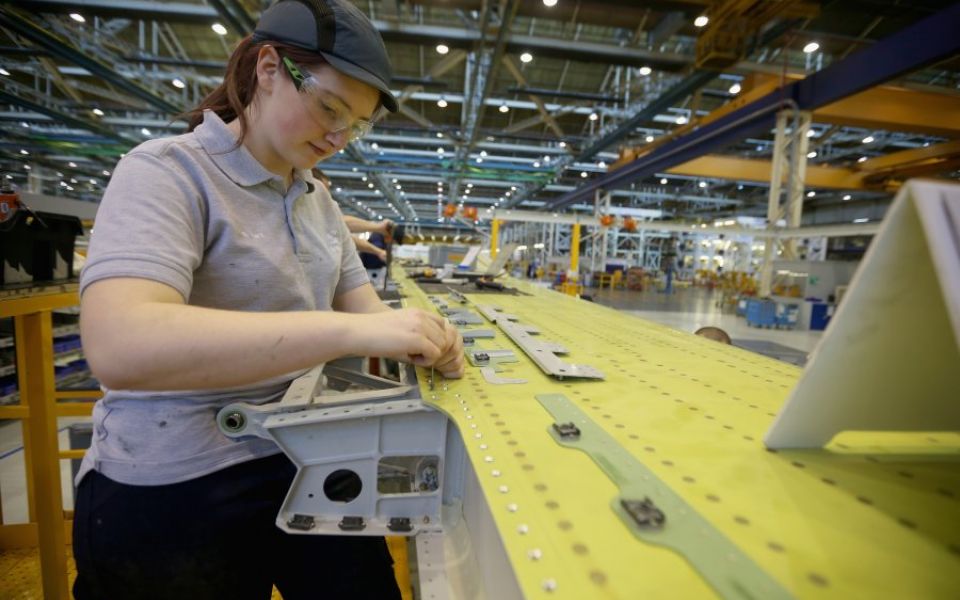British manufacturing strength bolstered by weak sterling and global economy

Manufacturing activity slowed slightly over the summer but output remained well above normal levels as the strong global economy supported activity, according to a closely followed survey.
The measure of manufacturers’ order books from the Confederation of British Industry (CBI) fell by four points, with a balance of seven per cent of the 379 firms surveyed saying the volume of work had increased in the three months to August.
While weaker than the high points hit at the end of 2017, the sector’s performance remains well above normal, with a long-term average balance of negative 13 per cent.
Manufacturers, which account for around 10 per cent of the British economy, enjoyed a strong period after the Brexit vote triggered a big fall in sterling, boosting exporters. While the effects of the devaluation are thought to have all but passed through, strong global growth – in spite of US President Donald Trump’s protectionism – has also contributed to the purple patch.
Anna Leach, CBI head of economic intelligence, said: “Manufacturing growth remains strong, supported by the lower level of sterling and strong global economy.”
However, she added that “risks to that growth remain high in light of international trade tensions and the uncertainty caused by Brexit”, with firms “keen to see urgent progress” on the withdrawal agreement to “lock in” a transitional deal guaranteeing continued unchanged trade after March 2019.
City economists said the survey showed the manufacturing survey is still enjoying a decent growth rate, although other indicators, including the purchasing managers’ index (PMI) from IHS Markit, paint a slightly less rosy picture.
Firms’ forward-looking expectations rose in August to the highest since May, with a balance of 20 per cent expecting an increase in volumes, continuing the run of over a year above the longer-term average. Meanwhile, the volume of output in the last three months was also well above average.